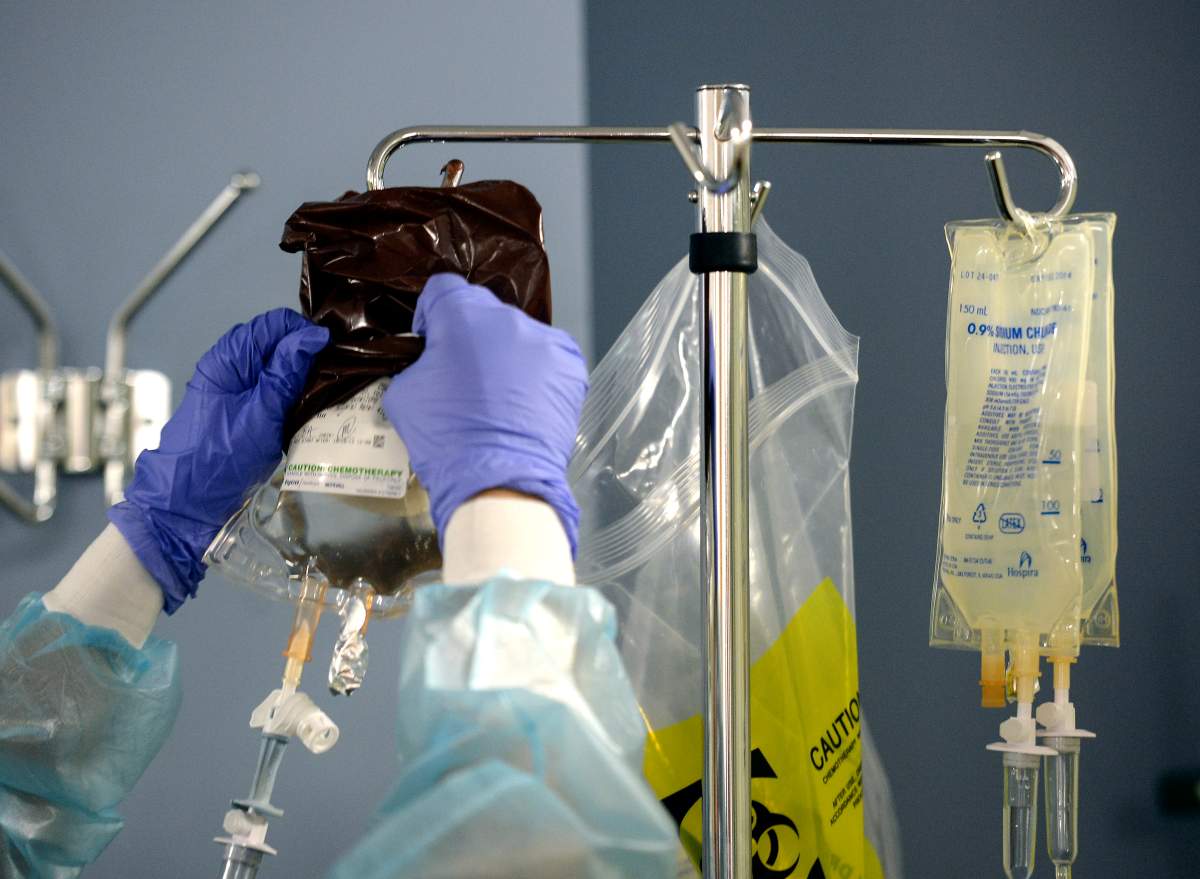For cancer patients undergoing treatment, the many rounds of chemotherapy or radiation can take a toll on their physical and mental health.

But Dr. Kerry Courneya at the University of Alberta’s Faculty of Kinesiology says exercise, not rest, may be the best option to cope with treatment.
Dr. Courneya was recently named a co-recipient of the Canadian Cancer Society’s O. Harold Warwick Award for his studies into exercise for cancer patients. He tells the Alberta Morning News the patients he has approached for his study are often surprised by his suggestion.
“The most common complaint from cancer patients is they have no energy after their diagnosis and especially when they’re going through these treatments, so it’s very much counter-intuitive for them.”
He says they start most patients off with light or moderate workouts, and in some cases they work their way to high-intensity workouts and weight lifting.

Get weekly health news
Dr. Courneya says their exercise program focuses on a slower progression because there’s more “ups and downs.”
“For cancer treatments, sometimes we start to progress and then the side effects of the treatment kick in, and then we have to back off the exercise program to work around the side effects they are experiencing.”
The first focus of his studies was whether exercise could improve a patient’s quality of life as they undergo treatments.
Not only did the patients feel better physically, but Dr. Courneya says their mental health also improved.
“Coping with cancer, a potentially life-threatening disease, is very stressful, very anxiety-provoking, some patients go through depression,” Dr. Courneya said.
“A lot of these mental health benefits of exercise are what really keep them motivated and going through it.”
He then looked at whether exercise can push someone to complete more of their treatments than if they were resting. His studies found breast cancer patients who exercise while undergoing chemotherapy carry through with more of their treatments.
WATCH: The importance of self-care for women undergoing cancer treatment

Now, Dr. Courneya is looking at the medical outcomes of exercise in his current studies. One of those questions focuses on if exercise impacts the cancer directly.
“Did patients who exercise, while they’re on chemotherapy, get a better response? In other words, do their tumours shrink more, is their cancer more likely to go away?”
He is also looking to find out whether staying active, during and after treatment, lowers the risk of recurrence and the risk of dying of cancer.












Comments
Want to discuss? Please read our Commenting Policy first.